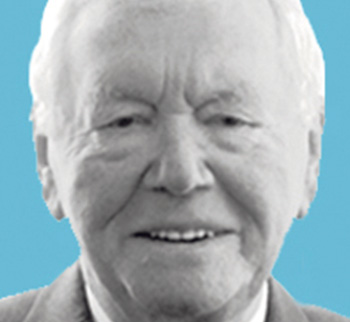Reacting to the negative views about Reform Judaism that Reuven Rivlin expressed before he was elected president of Israel, I ended my column last July with a question: “Will the new president of Israel respond in ways that enhance the dignity of his office?” Though reports tell of his meetings with leaders of Reform and Conservative Judaism, apparently he still doesn’t always address Reform rabbis as “rabbi.”
But he’s reaching out to others. Most significant is his outreach to Palestinians. Writing earlier this month in the New Yorker, editor David Remnick described the president as “the highest ranking advocate among Jewish Israelis for the civil rights of the Palestinians both in Israel and in the occupied territories.”
Last month, Rivlin went to Kfar Kassem, the village where in 1956, Israeli border guards killed 49 Arab civilians. Standing in front of the memorial to the victims, he said Israel must “look straight at what happened in Kfar Kassem and teach all future generations about it.” No other president had spoken like that.
As he confronts the ugly side of contemporary Israel, his concerns aren’t only about the past. The Times of Israel reported that at Kfar Kassem he called for honesty in admitting that “the Arab sector in Israel has suffered years of discrimination” and that still today “many Arabs today are faced with racism from Jews.”
Speaking to a group of Israeli academics, Rivlin said that “Israeli society is sick, and it is our duty to treat the disease.” Alluding to past events and recent incidents, he said “the tension between Jews and Arabs within the State of Israel has risen to record heights.”
The president repeated the charge at a mass rally in Tel Aviv commemorating the anniversary of the assassination of prime minister Yitzhak Rabin. He said that what happened then could happen again: “Violence is undermining the very foundations of Israeli democracy” which must be “condemned, denounced and isolated.”
Remnick suggests that had these words been spoken by a politician on the left, supporters of the government of Israel would no doubt denounce it as Jewish self-hatred. A statement of this kind by a non-Jew would have been branded anti-Semitic. But Rivlin is a staunch member of the ruling Likud party, with a proven record of advocating for right-wing causes, including opposition to a Palestinian state.
Yet he’s also said to be a warm Jew and a passionate democrat. He seems to realize that as dangerous as Israel’s external enemies may be, the real threat to its future comes from within and is also manifest in racist rhetoric and discrimination of Arabs, both in Israel and the territories. Instead of blaming others, he urges the country’s Jews to look at themselves.
It’s probably with this in mind that Avishai Margalit, one of Israel’s most prominent philosophers, is quoted to have said that “Rivlin may turn out to be the most influential president in Israeli history.”
Rivlin’s predecessor, Shimon Peres, arguably the best known and most appreciated living Israeli in the world, has done much to enhance his country’s international standing at a time when its diplomacy appeared to falter. His influence in Israel, however, has been limited. Though it’s too early to predict how Israelis and others will perceive Rivlin, there are signs that Margalit’s assessment may be accurate.
It’s no secret that Prime Minister Benjamin Netanyahu opposed Rivlin’s election, but the majority of Knesset members, who have the sole authority to make the appointment, decided otherwise. It may turn out to have been something of a blessing for Israel.
Judging by the president’s statements, there’s reason to hope he’ll continue to articulate Jewish values and make a lasting difference to Israel’s Arabs, who comprise some 20 per cent of the country’s population, and perhaps also to the Palestinians in the West Bank.
One day he may even get it right about Reform Judaism.
